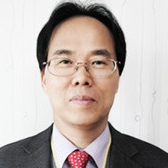Electrochemical Supercapacitors/Batteries for Advances in Energy Storage and Conversion, Novel Materials, Efficient Technologies and Applications
A special issue of Energies (ISSN 1996-1073). This special issue belongs to the section "D1: Advanced Energy Materials".
Deadline for manuscript submissions: closed (25 December 2021) | Viewed by 662
Special Issue Editors
Interests: solar power generation system and energy storage System; next generation solar cell and super-capacitor; laser and sensor applications; remote control by smart-phone
Special Issues, Collections and Topics in MDPI journals
Interests: electrochemistry; energy storage
Special Issues, Collections and Topics in MDPI journals
Special Issue Information
Dear Colleagues,
Supercapacitors/Batteries are electrochemical energy storage and conversion devices known for their immense power densities and operational lifetimes. New stringent environmental policies entail a fast-growing energy demand from renewable energy sources to date. Electrochemical supercapacitor energy sources currently represent the most widespread renewable sources, although they have an intermittent and fluctuating behavior. Supercapacitors/Batteries find them readily applicable in portable electronics, automobile vehicles, stationary power stations and backup power supplies, etc. However, the major challenge for supercapacitors is their insufficient specific capacity/capacitance, which limits their more wide applications. In recent years, there is tremendous effort focusing on the development of new and cost-effective electrodes and electrolyte materials as well as electrode configuration to improve the specific capacity/capacitance density of the next generation of supercapacitors. At present, with the continuous improvement of electrochemical energy storage technologies, the increasingly mature market model and the rapid expansion of application scale, the era of energy revolution supported by energy storage technologies has quietly arrived. Therefore, development of electrochemical energy storage technologies is an indivisible part of resolving the energy crisis problem in the future. In order to benchmark the state of research in this area at this time, Energies invites for a special issue dedicated to recent development in Supercapacitors/Batteries. Topics on any Supercapacitors/Batteries-related aspects are encouraged with specific attention to the following topics of electrical double layer capacitors (EDLCs), Pseudocapacitors (PCs), and hybrid capacitors (HCs), focusing on state-of the-art progresses, developments and new trends:Topics of interest for publication include, but are not limited to: New configuration for hybrid capacitors Supercapacitor technologies, processes and materials; Electrode materials development Special devices for unconventional applications or harsh environments; Hybrid and lithium-ion capacitors; Experimental techniques for testing, characterization, monitoring and diagnosis of supercapacitors; Approaches and tools for supercapacitor modeling and simulation; Electrolytes development; Capacitor chargers and management systems; Cyclability and self-discharge analysis; Power electronics and converters for supercapacitors interfacing; Systems and applications exploiting supercapacitors, such as energy storage, uninterruptible power supplies, smart grids, advanced transportation, renewable sources and clean energies; Supercapacitor integration and combinations with other energy storage solutions; Electrical vehicles, machines, starters and drives supported by supercapacitors; Modeling with new synthesis tecknologies on the electrodes/electrolytes and system; Energy harvesting and recovery, including regenerative braking; System integration and coupling of supercapacitors to fuel cells and batteries; Reliability and safety of supercapacitors and related systems; Novel/efficient applications including portable devices, back-up powers, automobiles.
Prof. Dr. Hee-Je Kim
Dr. Anil Kumar Yedluri
Guest Editors
Manuscript Submission Information
Manuscripts should be submitted online at www.mdpi.com by registering and logging in to this website. Once you are registered, click here to go to the submission form. Manuscripts can be submitted until the deadline. All submissions that pass pre-check are peer-reviewed. Accepted papers will be published continuously in the journal (as soon as accepted) and will be listed together on the special issue website. Research articles, review articles as well as short communications are invited. For planned papers, a title and short abstract (about 100 words) can be sent to the Editorial Office for announcement on this website.
Submitted manuscripts should not have been published previously, nor be under consideration for publication elsewhere (except conference proceedings papers). All manuscripts are thoroughly refereed through a single-blind peer-review process. A guide for authors and other relevant information for submission of manuscripts is available on the Instructions for Authors page. Energies is an international peer-reviewed open access semimonthly journal published by MDPI.
Please visit the Instructions for Authors page before submitting a manuscript. The Article Processing Charge (APC) for publication in this open access journal is 2600 CHF (Swiss Francs). Submitted papers should be well formatted and use good English. Authors may use MDPI's English editing service prior to publication or during author revisions.
Keywords
- supercapacitors
- batteries
- solarcells (QDSSCs, DSSCs)
- energy storage
- energy management
- energy conversion
- power electronics
- pulsed power
- perovskite solarcells
- fast control
- electrical machines and drives
- electric and hybrid vehicles
Benefits of Publishing in a Special Issue
- Ease of navigation: Grouping papers by topic helps scholars navigate broad scope journals more efficiently.
- Greater discoverability: Special Issues support the reach and impact of scientific research. Articles in Special Issues are more discoverable and cited more frequently.
- Expansion of research network: Special Issues facilitate connections among authors, fostering scientific collaborations.
- External promotion: Articles in Special Issues are often promoted through the journal's social media, increasing their visibility.
- Reprint: MDPI Books provides the opportunity to republish successful Special Issues in book format, both online and in print.
Further information on MDPI's Special Issue policies can be found here.






